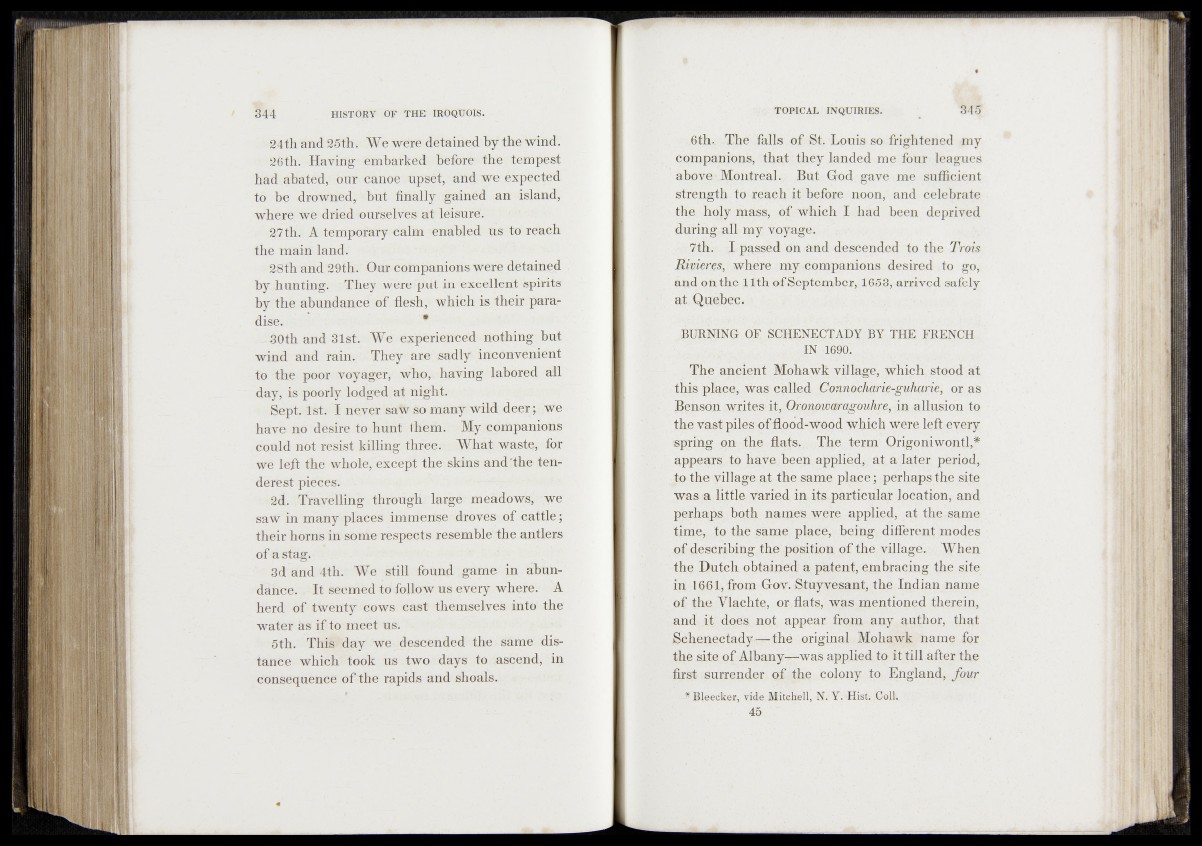
24 th and 25th. We were detained by the wind.
'"26th. Having" embarked before the tempest
had abated, our canoe Upset, and we expected
to be drowned, but finally gained an island,
where we dried ottrselvtes at leisure.
27th. A temporary calm enabled ns to reach
the main land.
28th and 29th. Our companions were detained
by hunting. They- were - put in ^excellent spirits
by the abundance of flesh, which is their paradise.
~
—ROth and 31st.' We experiebced-m©thing but
wind and rain. They ■’ ere sadly- inconvenient
to the poor voyager,- who,, hgcvinjg labored ail
day, ^poorly lodged at night.
Sept. 1st. I never sa% so many;wild dag^^we
have no desire to hunt? (hem. My companions
Gould notiresist killingbtkfee^ What waste, for
WO lift the whhld^ekcept the shins and Jtbwjfcem
deresbpieces;;
2d. Travelling through: lingc meadows',^ we
saw in many plaCeb imrriense. drcves\.'of cattle *
their horns in some respects resembleHhe antlers
of a stag;
3d and 4th. We still found game in abundance.
It seemed to follow us eyery where.- "A
herd of twenty cows cast themselves into the
water bs if to meet us.
5th. This* day we descended the same distance
which took ns two days to aspend, in
consequence of the rapids and shoals.
6th.. The falls of St. Louis so frightened my
companions, that they landed me four leagues
above ‘.Montreal. But God gave me sufficient
strength to reach it before noon, and celebrate
the ho^y mass, of which I had been deprived
during all my voyage; :
7th. . I passed bn and descended to the Trois
Rivierets, | where my Companio ns desired t to go,
and on the llth of September,-1653, arrived safely
at Quebec;
BURNING- OF SCHENECTADY BY THE FRENCH
IN 4 6 fh
The apeient Mohawk village, which stood at
this place, was called Connocharie-guharie, or as
JBenson writesi&yOf,qnpw$ragouhfe, in allusion to
the vast piles of hood-wood Which wereleft every
spring on the flats... The term Origoniwontl,*
appears to have, been applied, at a later period,
to they ill age at the same place^perhapsthe site
was a little, varied in its particular location, and
perhaps both names were applied, at the same
time,,, to the same place, being« different modes
of describing the position of the village. When
the Dutch obtained a patent, embracing the site
in; 1661, from Gov. Stuyvesant, the Indian name
of tl^, Wlachte, or flats, was mentioned therein,
and it does not appear from any quthor, that
.Schefleetady-jT-the original. Mohawk name for
the site of Albanyyr-waS applied to it till after the
first- surrender of the colony to England, four
* Bleecker, vido.Mitcliell, N/Y. Hist. Coll,
I 45